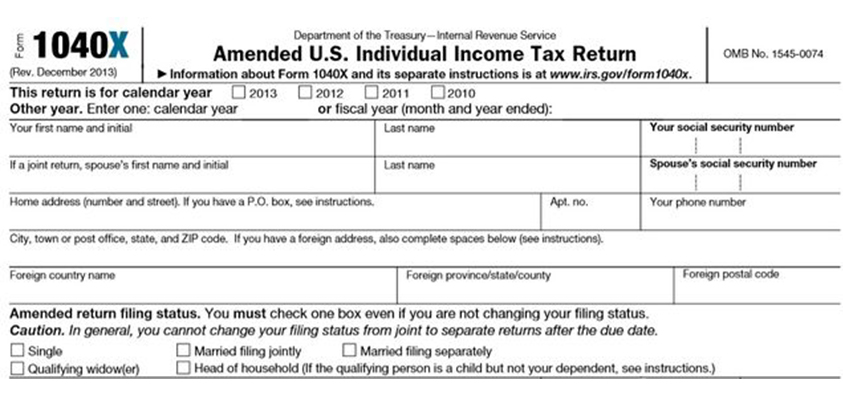LBCPA News 
Click here to go back
IRS Summertime Tax Tip 2016-02: IRS Offers Tips on Filing an Amended Tax Return

You may discover you made a mistake on your tax return. You can file an amended return if you need to fix an error. You can also amend your tax return to claim a tax credit or deduction. Here are 10 tips from the IRS on amending your return:
1- When to amend. You should amend your tax return if you need to correct filing status, the number of dependents or total income. You should also amend your return to claim tax deductions or tax credits that you did not claim when you filed your original return. The instructions for Form 1040X, Amended U.S. Individual Income Tax Return, list more reasons to amend a return.
2- When NOT to amend. In some cases, you don’t need to amend your tax return. The IRS will make corrections, such as math errors, for you. If you didn’t include a required form or schedule, for example, the IRS will mail you a notice about the missing item.
3- Form 1040X. Use Form 1040X to amend a federal income tax return that you filed before. You must file it by paper; you cannot file it electronically. Make sure you check the box at the top of the form that shows which year you are amending. Form 1040X has three columns. Column A shows amounts from the original return. Column B shows the net increase or decrease for the amounts you are changing. Column C shows the corrected amounts. You should explain what you are changing and the reasons why on the back of the form.
4- More than one tax year. If you file an amended return for more than one year, use a separate 1040X for each tax year. Mail them in separate envelopes to the IRS. See "Where to File" in the instructions for Form 1040X for the address you should use.
5- Other forms or schedules. If your changes have to do with other tax forms or schedules, make sure you attach them to Form 1040X when you file the form. If you don’t, this will cause a delay in processing.
6- Amending to claim an additional refund. If you are waiting for a refund from your original tax return, don’t file your amended return until after you receive the refund. You may cash the refund check from your original return. Amended returns take up to 16 weeks to process. You will receive any additional refund you are owed.
7- Amending to pay additional tax. If you’re filing an amended tax return because you owe more tax, you should file Form 1040X and pay the tax as soon as possible. This will limit interest and penalty charges.
8- Reconciling the Premium Tax Credit. You may also want to file an amended return if:
• You filed and incorrectly claimed a premium tax credit, or
• If you received a corrected or voided Form 1095-A. For more information, see Corrected, Incorrect or Voided Forms 1095-A for Tax Years 2014 and 2015.
9- When to file. To claim a refund file Form 1040X no more than three years from the date you filed your original tax return. You can also file it no more than two years from the date you paid the tax, if that date is later than the three-year rule.
10- Track your return. You can track the status of your amended tax return three weeks after you file with “Where’s My Amended Return?” This tool is available on IRS.gov or by phone at 866-464-2050.
If you have any questions regarding accounting, domestic taxation, international taxation, IRS representation, U.S. tax implications of Real Estate transactions or financial statements, please give us a call at 305-274-5811.
Source: IRS






